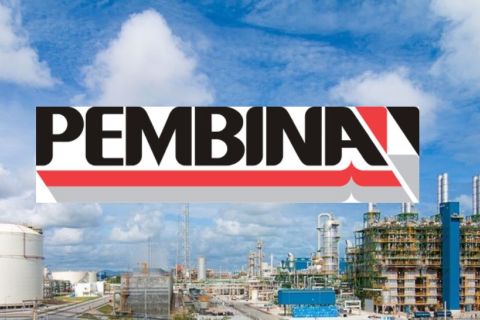Shell, C3 AI, Baker Hughes, and Microsoft have launched the Open AI Energy Initiative (OAI), a first-of-its-kind open ecosystem of artificial intelligence (AI)-based solutions for the energy and process industries, on Feb. 1. The OAI provides a framework for energy operators, service providers, equipment providers, and independent software vendors for energy services to offer interoperable solutions, including AI and physics-based models, monitoring, diagnostics, prescriptive actions, and services, powered by the BHC3 AI Suite and Microsoft Azure.
“This initiative is about combining the efforts of global leaders to accelerate the digital transformation of the energy industry to new, safe, and secure energy and to ensure climate security,” Thomas M. Siebel, C3 AI CEO, said.
The first set of OAI solutions provided by Shell and Baker Hughes are focused on reliability and designed to improve uptime and performance of energy assets and processes. These reliability solutions will serve as extensions to the current BHC3 Reliability application, an AI-based application that provides reliability, process, and maintenance engineers with AI-enabled insights to predict process and equipment performance risks for the energy industry. The application leverages the BHC3 AI Suite’s ability to integrate enterprise-scale data from disparate data sources and train AI reliability models that cover full plant operations while taking full advantage of Azure, Microsoft’s scalable, enterprise-class cloud infrastructure.
The OAI augments BHC3 Applications with partner-led, domain-specific solutions that accelerate deployment of AI-based reliability solutions to unlock significant economic value across the energy industry while helping to make energy production cleaner, safer, and more efficient. The initial OAI reliability solutions offered by Shell and Baker Hughes enable interoperability between BHC3 Reliability, OAI modules, and existing industry solutions for such applications. Solutions available today include proven and tested equipment- and process-specific modules with pre-trained AI models, codified subject matter expertise, low-latency data connectors, thermodynamic and operating parameter libraries, global health monitoring services, deep diagnostics, failure prevention recommendations, and prescriptive actions.
Shell is making modules available through the OAI, including predictive maintenance for control valves, predictive maintenance for rotating equipment and predictive maintenance for subsea electrical submersible pumps.
Baker Hughes will offer OAI interoperability with a range of existing technologies in the energy industry, including: iCenter – turbomachinery advanced digital services, Bently Nevada System 1 Condition monitoring software and Baker Hughes valve lifecycle management.
The Open AI Energy Initiative will augment Baker Hughes and C3 AI Applications, including: BHC3 reliability, production optimization, inventory optimization and C3 AI CRM.
“Digital technologies and AI are helping us improve our core business today and build the energy businesses of the future. Over the last few years, we have been working with C3 AI to scale our AI-based predictive maintenance solutions to reduce costs and improve the productivity, reliability, and performance of our assets,” Yuri Sebregts, Shell CTO, said. “We are monitoring more than 5,200 pieces of equipment using machine learning across upstream and downstream manufacturing as well as integrated gas assets. We are excited to take this capability to market and want to develop an open ecosystem where others can offer AI solutions to help improve reliability across the industry.”
Recommended Reading
Ozark Gas Transmission’s Pipeline Supply Access Project in Service
2024-04-18 - Black Bear Transmission’s subsidiary Ozark Gas Transmission placed its supply access project in service on April 8, providing increased gas supply reliability for Ozark shippers.
EQT CEO: Biden's LNG Pause Mirrors Midstream ‘Playbook’ of Delay, Doubt
2024-02-06 - At a Congressional hearing, EQT CEO Toby Rice blasted the Biden administration and said the same tactics used to stifle pipeline construction—by introducing delays and uncertainty—appear to be behind President Joe Biden’s pause on LNG terminal permitting.
Venture Global Acquires Nine LNG-powered Vessels
2024-03-18 - Venture Global plans to deliver the vessels, which are currently under construction in South Korea, starting later this year.
Imperial Oil Shuts Down Fuel Pipeline in Central Canada
2024-03-18 - Supplies on the Winnipeg regional line will be rerouted for three months.
Pembina Pipeline Enters Ethane-Supply Agreement, Slow Walks LNG Project
2024-02-26 - Canadian midstream company Pembina Pipeline also said it would hold off on new LNG terminal decision in a fourth quarter earnings call.





